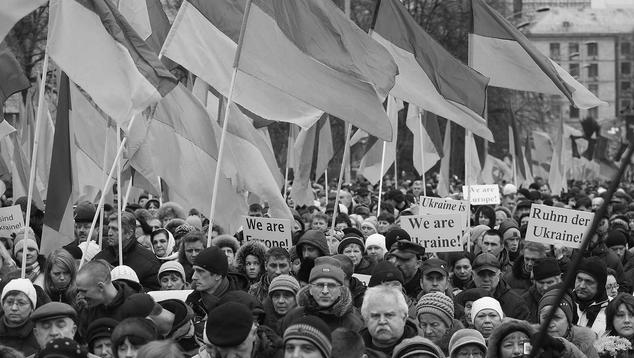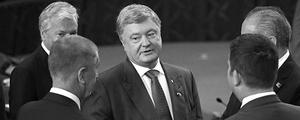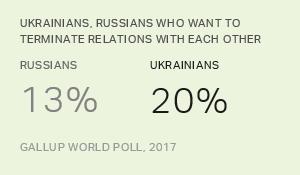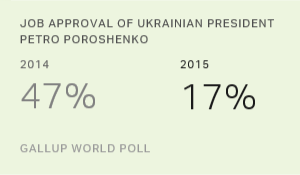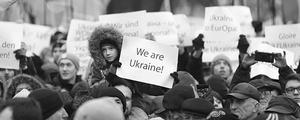Story Highlights
- Just 7% of Ukrainians approve of the leadership of Russia
- Approval of EU leadership rose from 36% in 2016 to 48% in 2017
WASHINGTON, D.C. -- The level of anti-Russia rhetoric from most of the candidates in Ukraine's election this weekend would have been unthinkable a decade ago, when Ukrainians were much more likely to approve than disapprove of the Kremlin. However, five years after losing Crimea to Russia, and with no clear end to fighting between Ukraine's government and Russian-backed separatists in the East, Russia's leadership has few fans left. Just 7% of Ukrainians in 2018 said they approve of Russia's leadership.
Anti-Russian sentiment within Ukraine is highest in areas with closer ties to Europe, with just 3% of those living in the North and Central areas (including Kiev) approving of Russian leadership. Conversely, the Russian-speaking East and South (which excludes Crimea and separatist-controlled regions) saw higher ratings of 12%, although nearly seven in 10 adults in those regions (69%) still disapproved of the leadership of Russia.
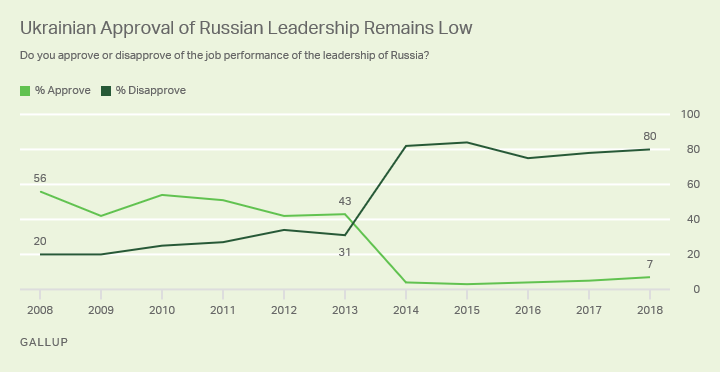
Still, Russia looms large over the election, and relations with Ukraine's neighbor are on the minds of candidates and voters. Many prominent candidates -- including all of the main contenders -- have put their opposition to Russia front and center in their campaigns and have championed warmer relations with the West, raising the possibility of joining the European Union and NATO.
This includes incumbent President Petro Poroshenko, who just last week slapped new sanctions on Russian citizens and entities in connection to the ongoing conflict in Ukraine and the situation in Crimea. His challengers Yulia Tymoshenko and Volodymyr Zelensky -- who is leading in many polls -- have also pushed for both closer ties with the West and bringing other countries to the peace-talks table with Russia.
Ukraine Continues to Warm Toward West
This is all taking place against a backdrop in which Ukrainians have warmed to relations with the West at the expense of those with Russia in recent years. Nearly half of adults in Ukraine (47%) approve of Germany's leadership and 28% approve of U.S. leadership, compared with single-digit approval of Russia's leadership.
This growing closeness applies to Western multinational bodies as well. Poroshenko has repeatedly called for Ukraine to join NATO, stating that they could have a roadmap for accession by 2023.
The latest data, from 2016, suggest that slightly more residents see the alliance as a threat to their country (35%) than associate it with protection (29%). More than a quarter (26%) of Ukrainians feel that NATO is neither.
Feelings toward the European Union are rapidly warming as well. In 2017, 48% of adults in Ukraine approved of EU leadership, a 12-percentage-point increase from the year before. Apart from defense, there is likely a large economic component to this as well. Faced with a stagnant job market back home, an increasing number of Ukrainians are choosing to find work abroad. EU countries are among the most desired destinations for Ukrainians who say they would move away from Ukraine if they could.
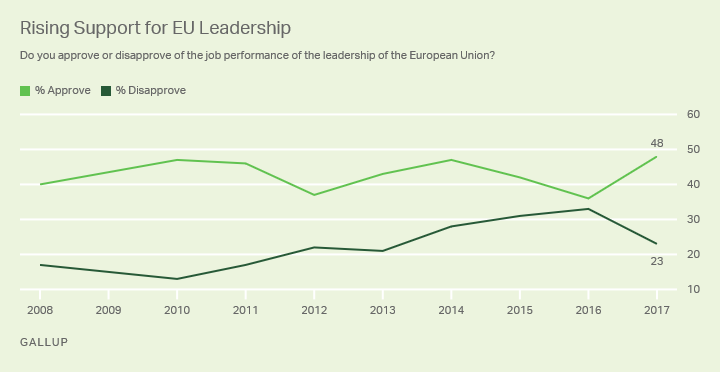
Bottom Line
A hard-line stance against Russia has gradually become the primary talking point for the current front-runners in the Ukrainian presidential elections. As the population has increasingly turned against Russian leadership and influence, candidates are increasing their rhetoric to match. Yet candidates will need to turn their rhetoric into actionable proposals if they are to convince voters that they can overcome the corruption and ineffectiveness that so many associate with the current government.
For complete methodology and specific survey dates, please review Gallup's Country Data Set details.
Learn more about how the Gallup World Poll works.
